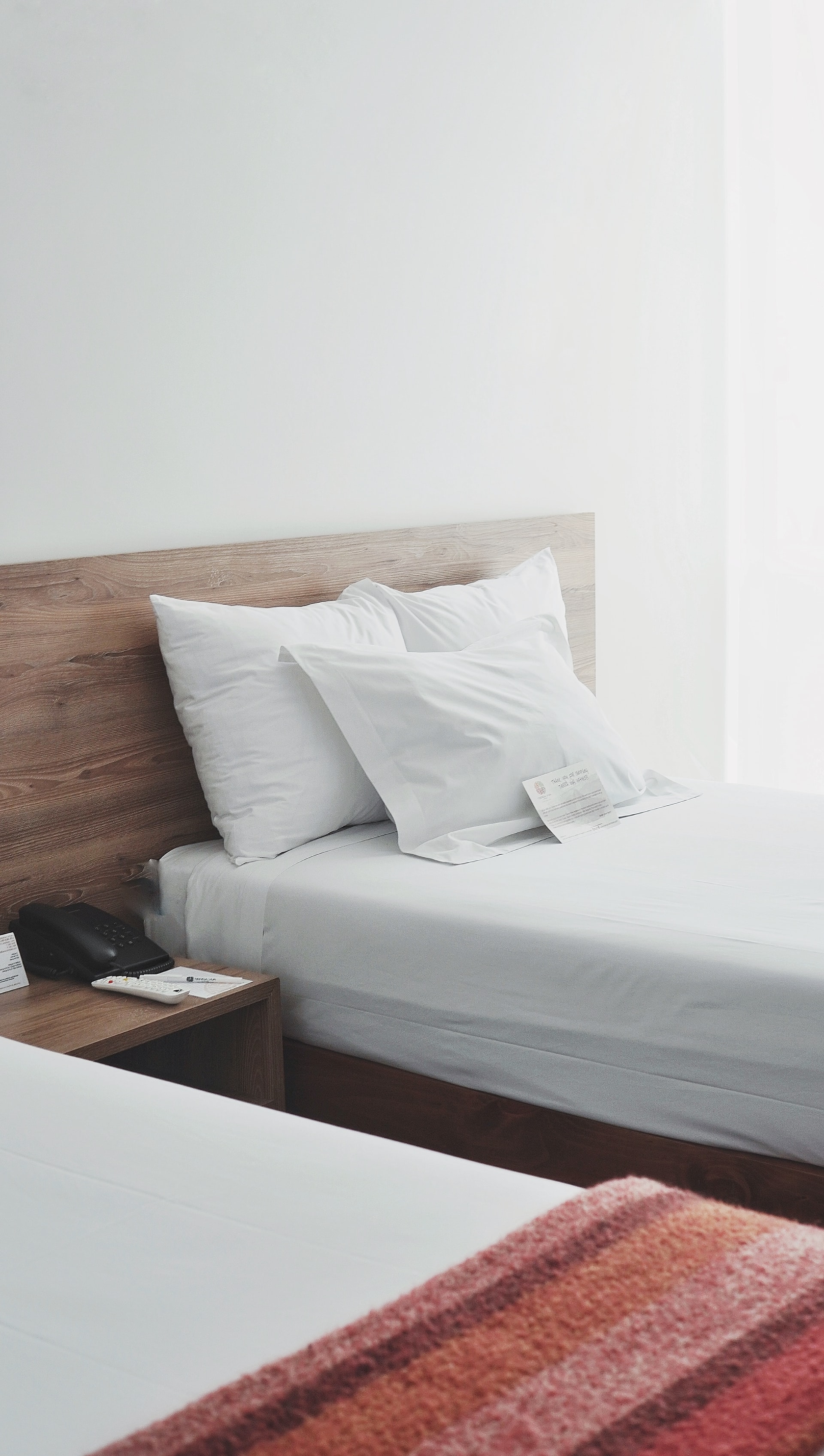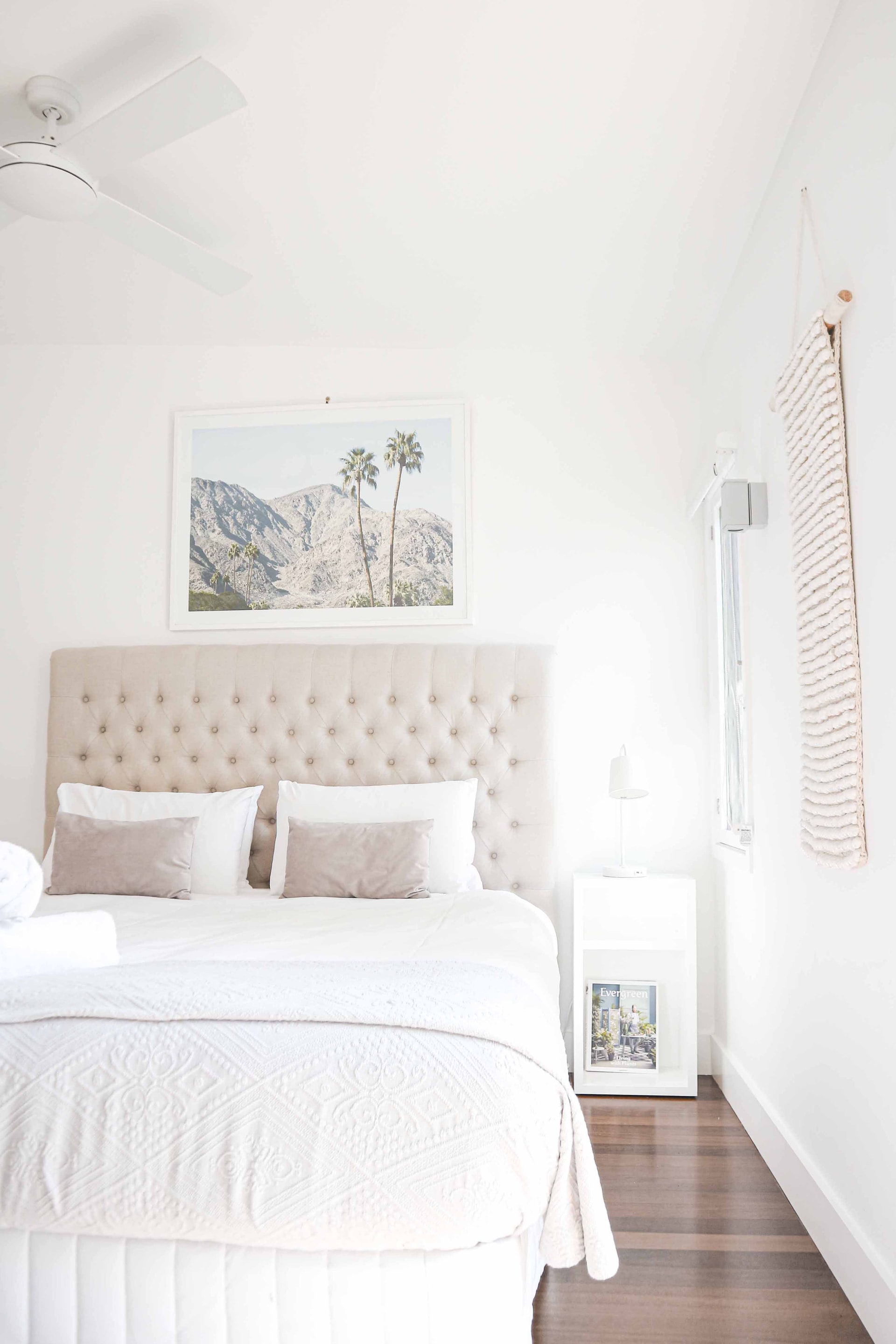

Figure out the largest bed that will comfortably fit the space. We’ve already said this, but it’s a really important step to getting a quality night’s sleep. Ideally, your bedroom should have enough room to move around the bed, but the bed should take up the most space. Plus, if you sleep with a partner, a larger bed will allow you both to move during the night without waking one another. Most people find themselves looking for queen beds in Adelaide, as that’s the size that tends to fit their room comfortably.
Create a separate space for living and working. The bedroom should be for sleeping only, and you need an entirely separate space in your home for work. When drifting off to sleep, the last thing you need is thoughts of deadlines, bills, and work drama flicking through your head. Some people have studio apartments that make separating the space hard but try to divide it as much as possible.
Cut down on the clutter. The more clutter you have in your bedroom, the less relaxing it will feel. So if you’ve got a stack of books by the bed or a messy vanity, try reducing the clutter or, at the very least, put it out of sight.
Create an inviting space. Ultimately, your bedroom should be a retreat; a place you go to unwind and be yourself. So invest in high-quality bed linen, pops of colour that make you feel safe and cosy, a scent diffuser, lighting that promotes sleep, and a white noise machine to make your room a sanctuary.

Save A Lot Beds’ Sleep-Guaranteed Bedtime Routine
If you want to have quality sleep every single night, you need to develop routines and habits that you can maintain. Your body will gradually adjust over time, and you’ll find yourself achieving regular, deep, restful sleep.
Set a bedtime. Some people haven’t had a bedtime since they were a child, but establishing a set bedtime helps your body prepare for a good night’s sleep. Aim to be in bed around 6-8 hours before you have to be awake, and try to stick to it every night of the week.
Stay away from screens. About an hour before your bedtime, turn off your TV, computer, or phone and give your eyes a chance to wind down for the night. Blue light from screens affects melatonin production, leaving us feeling wide awake when we should be sleepy.
Read something before bed. In the hour before sleep it’s an excellent opportunity to get a little bit of reading in. However, if you’re the kind of person who gets caught up in a book, try reading something simple and a bit dull to lull yourself to sleep. If you don’t like reading, try listening to an audiobook or podcast to wind down.
Meditate. Many people find it relaxing to meditate just before bed, as the breathing and visualisation exercises calm the mind and prepare it for sleep. You can find thousands of guided meditations online, or you can listen to white noise, nature sounds, or ASMR to drift off.
Make your bed. When you get up in the morning, the first thing you should do is make your bed. It’s an easy task that takes less than five minutes, but it sets you up for your entire day. Plus, there’s nothing better than coming home to a made bed every evening.